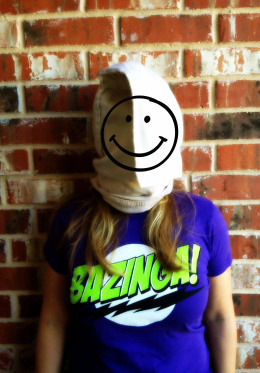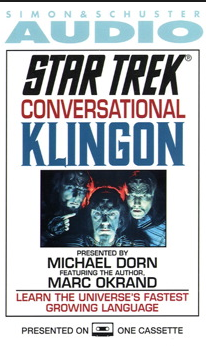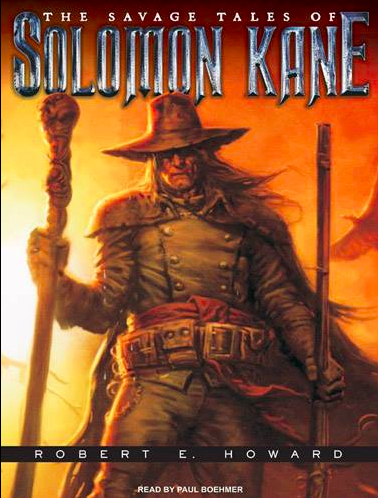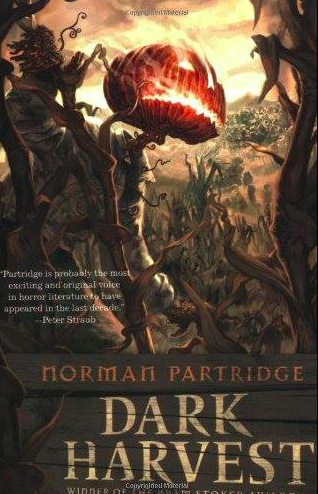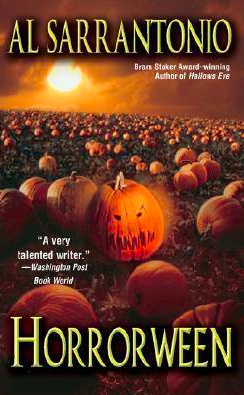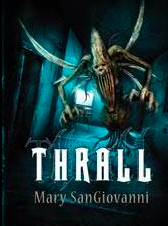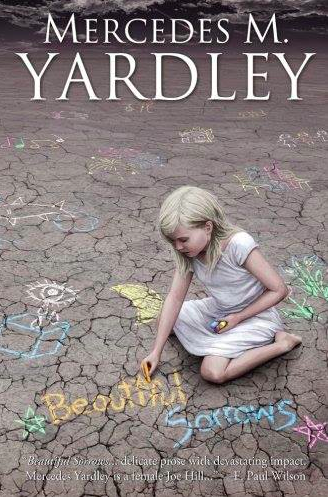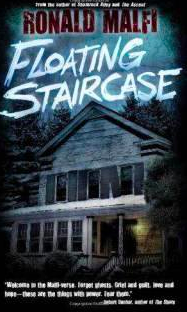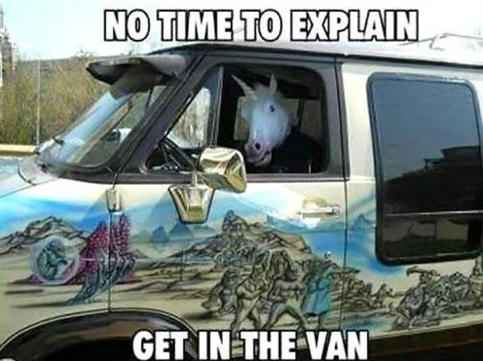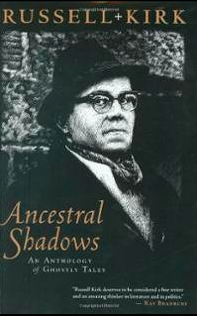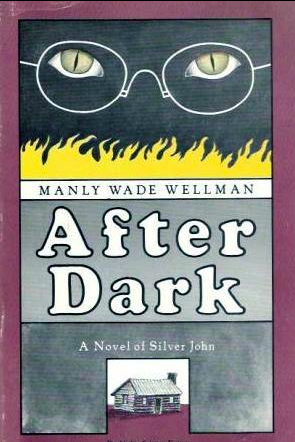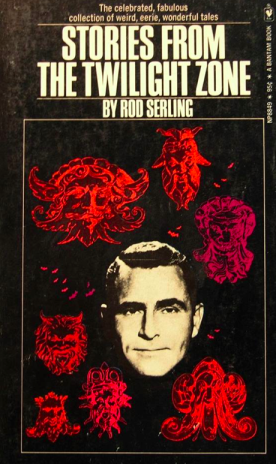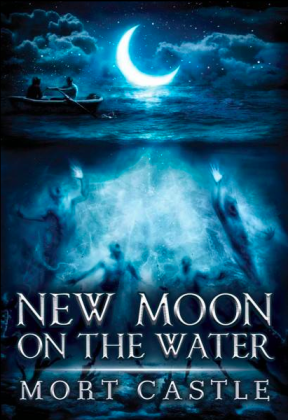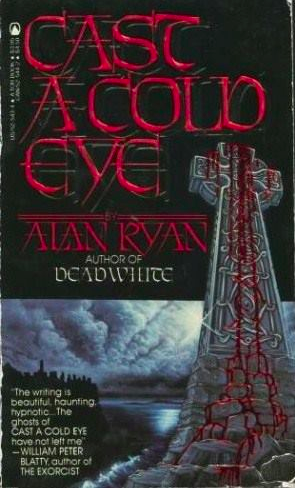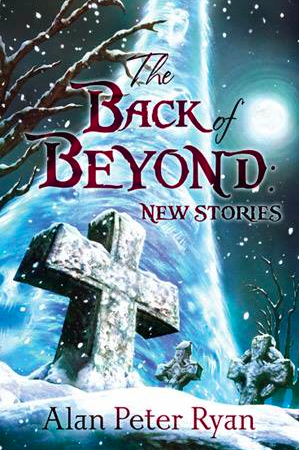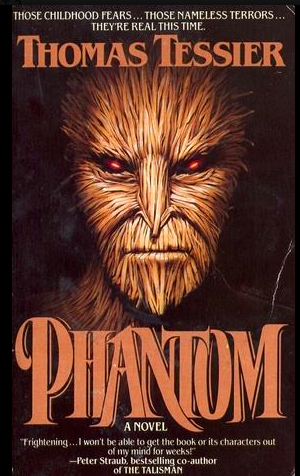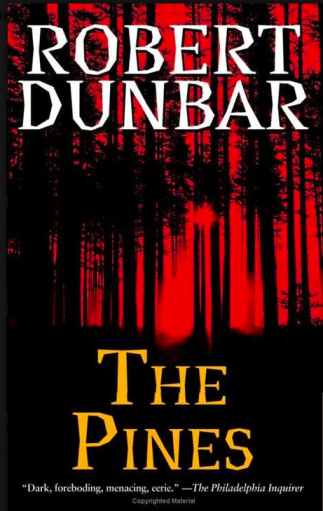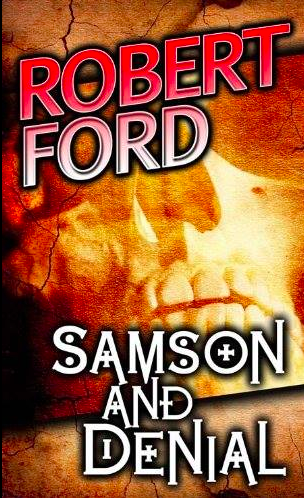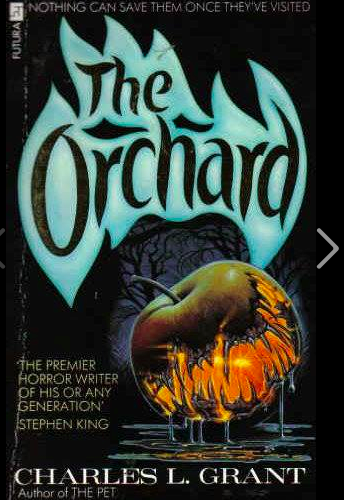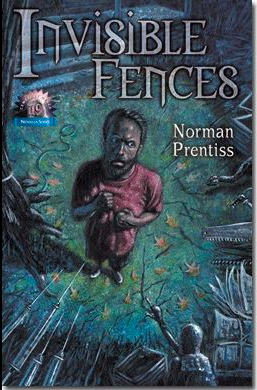Kristen Lamb's Blog, page 67
December 30, 2013
A Look Back at the Evolution of Publishing, Predictions That Came True & What This Means for YOU
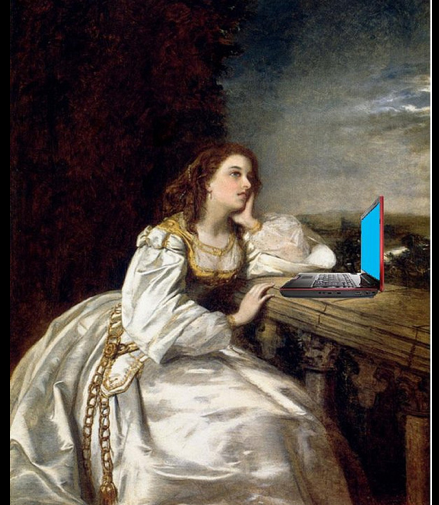
Image via Flickr Creative Commons, courtesy of Mike Licht
Ah, a New Year is before us. What is the future of publishing? What lies ahead for writers? Will Snooki have another baby? After consulting my team of advisors, those being the voices in my head, I’ll toss my predictions in the ring tomorrow. Granted, much of what I predicted last year has come to pass. A lot of it, I think still will happen but I have a history of being so far ahead of the game, people think I’m bonkers (ok, I am).
Note to Self: Perhaps wearing tinfoil hat impairs professional credibility.
Before I give any predictions for 2014, I figured it might be fun to take a quick look at the past nine years before we finish out my decade of Publishing Prognostication and Social Media Soothsaying. More fun than cleaning the house, right?
I’ve been very blessed to be right more times than I was wrong. I’d love to claim superpowers, but most of this is just doing what writers do—paying attention, using empathy, extending logic. Also, we are wise to seek out people smarter than we are. I know I do. I listened to bloggers, other experts, commenters and even self-professed non-readers, and they should have a lion’s share of credit.
This record of predictions is not an OOH, TOLD YOU SO! LOOK HOW AWSOME I AM! *OUCH I got a cramp patting myself on the back!* as much as it’s a poignant illustration how being present and engaged can give all of us tremendous advantages. When we try to automate the future or run our careers by remote, we lose predictive powers and become reactive instead of proactive. Our digital community is very wise if we are humble enough to participate, ask questions and then listen when they answer.
Thus, this 9-year list is to demonstrate that often, when we dare to be different, we will be criticized (often brutally), but our hearts, intuition and community can be pretty accurate guides if we stay the course ;)…
Nine-Year Record of Predictions:
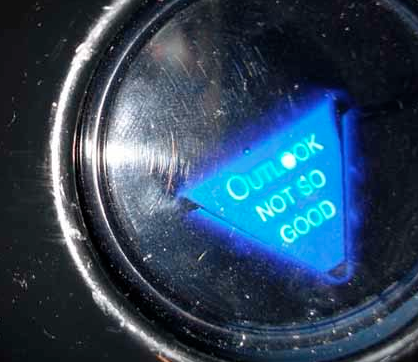
Big Six? Magic Eight Ball Says…
From 2004-2007, I predicted there would be a time when novelists could use social media to build a platform before the first book was even finished, and that this platform would eventually be a viable bargaining tool with publishers.
NUTSO. Burn her! She’s a witch!
I ignored the agents and writers who laughed at me and kept plodding away on Gather, then later MySpace and Facebook. I began using Twitter in 2008 because I felt this was a platform that would eventually change the way the world interacted. I hung out with all 20 other members on Twitter and waited, biding my time.
I also predicted that the same Digital Tsunami that leveled Tower Records would take out Kodak and then The Big Six.
Madness!
In 2008, I predicted that there would soon be a time that an author without a sound social media platform would be at a major professional disadvantage. Writers of The Digital Age had to have BOTH good books AND a sound platform. Good books alone were NOT ENOUGH.
What is she SMOKING?
If you peruse my archives, you will see many “sweet and thoughtful” comments by agents and authors regarding how I was an imbecile and writers only needed to write a good book. I was regularly informed I possessed the intellect of a brain-damaged monkey with a Valium addiction. Ouch. Agents (and writers) blogged left and right about staying off social media and focusing only on writing good books. Many indie author gurus preached the same.
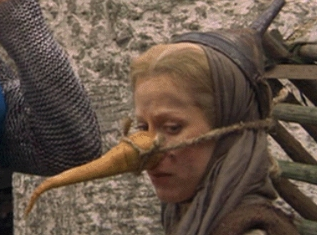
I just said we needed both good books and social media.
By 2011, agents stopped leaving hate comments on my blog, likely because they were too busy googling authors to see if they had a viable social platform. Major NYC agencies began refusing queries if a fiction author couldn’t demonstrate he/she had a sound platform. Today? Most have changed their tune and come to accept that Digital Age Authors have to be balanced to succeed—good books, good business, authentic social media.
In 2009, I encouraged The Big Six to embrace e-books, because that year some of the first affordable and user-friendly devices hit the market and I really wanted the Big Six to enjoy a Golden Era again. Sure theses gadgets were still in the Early Adopter part of the bell curve, but I noticed the price of smart phones, tablets, e-readers and data packages was steadily dropping at roughly the same time. To me, this was a clear indication that e-books would eventually edge over into the fat part of the bell curve and become entrenched. Smart phones and tablets would soon be mainstream and people would be searching for content and entertainment.
Actual Agent Quote: E-Books will be statistically meaningless. Like everyone thought audio books would end paper, e-books are a fluke and people will always want paper books.
*head desk*
I suppose this is one of the reasons why we no longer have a Big Six. *shrugs*
By 2010, I predicted that authors couldn’t rely on price alone. Cheap books would only hold power so long before it devolved into a race to the bottom of who could give away the most stuff for nothing. The “shiny” of .99 books and FREE! would dull once everyone was doing it. Also, consumers would get frustrated downloading books rife with errors, formatting issues and bad writing.
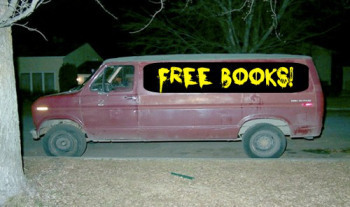
Hmmm, looks legit.
I postulated that eventually readers would pay more for something they might actually read. I advised writers to use .99 and FREE! promotions only of those tactics served a long-term advantage. For instance, offer the first book of a series for free or .99 to encourage sales.
Still do.
Amazon permitted this deluge of cheap books because it was putting the hurt on The Big Six. I theorized that once Amazon no longer considered Big Publishing a threat, it would reign in the freebies and the initial advantages offered to authors willing to hand away books. From 2012 to 2013, I noted the price of e-books highlighted on Amazon rise from .99-$2.99 to roughly $4.99 to $6.99, demonstrating Amazon’s strategy was paying off (this was right about the same time This Big Six became The Less-Big 5 and teetered on becoming The Spiffy Four). This was also when authors started seeing changes in how FREE sales were being ranked/weighted by Amazon.
In 2011, I recommended that major publishers rethink pricing for the e-book. Charging the same price for an e-book as a hardback was bad business that would come back to bite them and only fuel the indie momentum they were trying to stanch. Agency pricing would put them in the crosshairs of the DOJ (which it did). Also, this ridiculous pricing was bound to drive the mid-list authors into abandoning the traditional ship and becoming indies.
Though I’d love to claim Nostradamus-like-powers, this isn’t rocket science. A best-selling author can only get so many ticked off one-star reviews for an overpriced $24 e-book before rethinking if the publisher is really making sound business decisions for that author’s present and future career.
This same year, I also railed against automation (and, frankly, always have). I knew that, as more regular people started using Twitter, they’d soon be able to spot bots and would come to resent and ignore them. I warned writers against these “time-saving” devices. My sentiment? It doesn’t take but a few moments to hop on social media and type a sentence.
We are WRITERS.
I caught a LOT of heat over my attitude regarding automation and multiple accounts.
Then, The Boston Marathon Bombing tragically demonstrated the point I’d been trying to make for almost five years. Even well-crafted pre-programmed tweets are still SPAM. Our world changes on a dime and instantly. Many authors ended up in hot water because, “Buy my book, now FREE!” posted in the midst of a tragedy. And the time spent undoing the damage to the author brand probably exceeded that time “saved” by automating tweets.
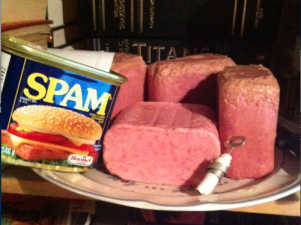
YUM….or not.
In 2011 and 2012, I warned against algorithmic alchemy. Amazon, Google, etc. knows when someone is abusing algorithms for any advantage. This is why they employ teams of computer experts who are tasked with changing algorithms any time certain users start gaining a manipulative advantage. Juking numbers only works short-term. There are better and longer-lasting uses of our time. Amazon now limits tags and penalizes abusers.
In 2013 I predicted a flood of mid-list authors would cut loyalty with NY and choose indie or hybrid paths. This is actually becoming more and more standard practice over the past year. CJ Lyons is one of many traditional authors who’s decided to add indie publishing into her career plan. When I spoke at Thrillerfest in NYC this past July, the CEO of AMAZON Publishing was the keynote. The hard line dividing writers finally began to crumble this past year.
I will post my predictions for 2014 tomorrow, but what I hope you take away from today’s post is:
If we aren’t failing, we aren’t doing anything interesting.
The truly successful are never too smart or too talented or too important to listen to others.
Heat can burn us or forge us. If we dare to go against the majority, expect pushback. Often it’s a sign we’re onto something ;).
Never fear being wrong. It’s the only way to figure out what’s right.
We really can’t predict the future, only create it. So let’s create something AMAZING!
WE ARE NOT ALONE!
What are your thoughts? Have you been ridiculed but kept pressing? What are some mistakes you made, but what did you learn? I know I’ve made plenty and they taught me way more than success. What were some trends you spotted and maybe people thought you were nuts?
I LOVE hearing from you!
To prove it and show my love, for the month of December, everyone who leaves a comment I will put your name in a hat. If you comment and link back to my blog on your blog, you get your name in the hat twice. What do you win? The unvarnished truth from yours truly. I will pick a winner once a month and it will be a critique of the first 20 pages of your novel, or your query letter, or your synopsis (5 pages or less). Comments for guests get extra POINTS!
I hope you guys will check out my latest book Rise of the Machines–Human Authors in a Digital World and get prepared for 2014!!!!


December 27, 2013
The Mouse That Roared—Invasion of the Micro-Trend & Why Indies Hold Increasing Power
The Digital Age has arrived, and the ramifications of a connected world are still being revealed daily. But, there’s one trend I’d be hard-pressed to argue with. The 20th Century was all about homogeneity. Madison Avenue flourished by telling us which clothing brands made us cool, which car made us special, what foods were “healthy.” Tower Records controlled what music we heard and The Big Six selected which books we read.
Gatekeepers controlled information and retailers restricted commodities because homogeneity dictated many business decisions. Homogeneity was simpler and required less paperwork and thinking.
Generations bought Wonderbread because it was “fortified with vitamins” and “good for your kids.” In 1986? Hope you liked stirrup pants. There was a cultural need to “fit in” and be like everyone else, especially those who were the “cool kids.”
“Pillars of Same” Go Crashing Down
With the advent of the Internet and widespread use of social media, homogeneity is crumbling while counterculture is exploding. Individualism is now revered more than ever in human history. And, no matter how weird, off-beat, or All-American we want to be? There is a subculture to embrace our style. Mega-trends have lost their power, and this change is accelerating as the globe becomes increasingly interconnected.
Today, changing lifestyles, the Internet, the balkanization of communication, and the global economy are coming together to create a new sense of individualism that is powerfully transforming our society. ~Microtrends, Penn/Zalesne
What this means is that, as consumers are faced with more and more choices, we’re segregating ourselves into smaller and smaller subgroups. Love tattoos? Interested in what Alaska State Troopers actually do? Love looking at wedding dresses? Enjoy motorcycles, skateboarding, cooking, or remodeling your home on a budget? There’s a show, a Pinterest site or Facebook group to cater to countless passions.
Can’t get enough of Jackson Galaxy and cat whispering? Are you Stay-at-Home-Mom who kicks butt on a Roller Derby Team each Saturday? It’s all out there, and most of us are a unique mixture that can’t easily be categorized.
What Does This Mean for Publishing?
Big publishing has a number of limitations. First, their size. Second, massive overhead. Third? 20th Century thinking. They have to find the mega-trend to stay in business, but what does this mean in a marketplace that is rapidly shifting to micro-trends?
NY is less able to spot the micro-trends, because in a world of algorithms, numbers and spreadsheets, one relies on the past to predict the future. Business is always looking backward in order to move forward. It’s like trying to drive our car using the rearview mirror as the main guide. Says a lot about where we’ve been, but gives limited information as to what’s ahead.
Indies Have Revealed the Micro-Trend
We’ve talked about the Fifty Shades of Grey phenomenon before, yet I’ve met the agents who turned down the manuscript. It was through E.L. James’ massive volume of independent sales that the micro-trend surfaced and then NY could turn this success into a mega-trend. A genre which received little to no attention has grown exponentially since.
This was one of the reasons I recommended NY create e-book divisions as early as 2009 (REAL e-book divisions, not vanity-press retreads). Find a good book, give it a chance and see if the trend emerged. If not? The product cost less to produce and the writer could earn a higher royalty.
Even if the book didn’t sell bazillions of copies, writers didn’t have to sell that many books to make a healthy living and be freed up to write more books. Now instead of NY banking the farm on finding the ONE mega-trend, they could reap the rewards of countless micro-trends.
Which is exactly what Amazon has been doing.
Amazon doesn’t need one author to sell two million copies (not that they are opposed to it), but they can easily have 20 or even a 100 authors sell two million copies. The money spends the same.
Additionally, there were entire forms of writing nearly rendered extinct until the e-book. Agents didn’t want poetry books because, “People don’t read poetry.” Yet, how can we read it if no one publishes it? The real truth was that in a paper paradigm, NY couldn’t make enough money off poetry, novellas, short stories, etc. to make publishing them a sound investment.
An indie, however, can cater to those who want to read poems or essays or blended genres, because they can produce and distribute without going in the red. They can afford to experiment and see if a market/fan base emerges.
The e-book revolution also opened the door for the far larger works. When I began querying over a decade ago, agents wouldn’t look at a high-fantasy that spanned 160,000 words. Why? Because it made the book too large to be shelved easily. Simple math. Nothing to do with whether or not people “no longer read epic high fantasy.”
This is Why Social Media is Vital for Authors
Social media is vital for keeping our fingers on the pulse of the public (code for “readers”). We can use blogging to define our brand then use content to attract those who share our “subculture” tastes (which I teach how to do in my latest book).
It’s the main reason it’s death to be the All-Writing-All-The-Time-Channel. That’s a one-dimensional subculture that is overfished and quickly grows stagnant.
Also, any writer worth his/her salt should be interested in a lot of things. The more we feed our unique subculture, the healthier it becomes, and the more loyal. We are all seeking our peeps, our tribe, our “friends” in a world that has become explosively larger.
Small is the New Big (Thank, you, Seth Godin)
Modern humans are overwhelmed with the sheer volume of choices, and, as a response, we stick to what we know. Sure, in 1999 we LOVED the megastore because it was new and shiny. Fifteen years later? We’re tired of needing to hail a taxi at the Mega Wal-Mart because we forgot the ketchup on aisle 3 and are now in the school supplies on aisle 93.
We’ll pay a bit more to shop at the corner market who appreciates our love for Organic Raw Kombucha, GF hot dog buns, and foie gras. We can buy Wonderbread at a supermarket or go to the small boutique grocer that sells sprouted grains for those of us in the crowd of Wonder-Why-We-EVER-Ate-Wonderbread.
Everyone wins.
But to spot and nourish the micro-trend, we must be present. Micro-trends can earn us a healthy living. A single writer doesn’t need to sell as many books to keep the lights on as NYC does. Also micro-trends have the potential to grow up to be mega-trends. This is why beginning as an indie or self-publishing can be a good idea for the right author/content. Spreadsheets can’t tell us as much as people can. And, trust me, people have a lot to say. Numbers can’t tell us as much about the future as relationships can.
What are your thoughts? Do you love a world where you can define your own style? Create your own genres? Mix in your varied interests? Have you met people on social media with similar hobbies that you’d never have met in person?
I LOVE hearing from you!
To prove it and show my love, for the month of December, everyone who leaves a comment I will put your name in a hat. If you comment and link back to my blog on your blog, you get your name in the hat twice. What do you win? The unvarnished truth from yours truly. I will pick a winner once a month and it will be a critique of the first 20 pages of your novel, or your query letter, or your synopsis (5 pages or less). Comments for guests get extra POINTS!
I hope you guys will check out my latest book Rise of the Machines–Human Authors in a Digital Worldand get prepared for 2014!!!!


December 26, 2013
Five Mistakes KILLING Self-Published Authors
When I began writing I was SO SURE agents would be fighting over my manuscript. Yeah. But after almost thirteen years in the industry, a lot of bloody noses, and even more lessons in humility, I hope that these tips will help you. Self-publishing is AWESOME, and it’s a better fit for certain personalities and even content (um, social media?), but we must be educated before we publish.
Mistake #1 Publishing Before We Are Ready
The problem with the ease of self-publishing is that it is, well, too easy. When we are new, frankly, most of us are too dumb to know what we don’t know. Just because we made As in English, does not automatically qualify us to write a work spanning 60,000-100,000 words. I cannot count how many writers I’ve met who refuse to read fiction, refuse to read craft books, and who only go to pitch agents when they attend conferences at the expense of attending the craft sessions.
Additionally, too many new writers I meet do not properly understand the antagonist. They don’t grasp three-act structure, and most don’t have any idea what I mean when I mention POV, Jungian archetypes, or the phrase, “scene and sequel.”
I see a lot of new writers who believe their story is the exception, that the rules make for “formulaic” writing. No, rules are there for a reason, and, if the writing is too formulaic, it has more to do with execution than the rules.
Three-act structure has been around since Aristotle, and there is a lot of evidence in neuroscience that suggests that three-act structure is actually hard-wired into the human brain. Thus, when we deviate too far from three-act structure, it confuses and frustrates readers. Stories have clear beginnings, middles and ends. Without a clear story objective, it is impossible to generate dramatic tension, and what is left over is drama’s inbred cousin, melodrama. Yet, many writers start off writing a book without properly understanding the basic skeleton of story.
Writing fiction is therapeutic, but it isn’t therapy. Yes, characters should struggle with inner demons, but that does not a plot make. Struggling with weakness, inner demons, insecurity, addictions are all character arc, not plot arc. There should be a core story problem that we can articulate in ONE sentence. The plot arc should serve to drive the character arc. If the character does not grow and change she will fail, but it is the core story problem that drives this change. Without the problem, there is no crucible.
Yes, we are artists, but we need to understand the fundamentals. I played clarinet for years, and yes it was an art. But this didn’t excuse me from having to learn to read music, the finger positions and proper embouchure (the way to position the mouth to play).
The better we are at the basics, the better we know the rules, the more we become true artists.
I’ve received contest winners whose first pages were filled with newbie errors. Yet, when I sent them my critique filled with pages of corrections, I would then receive a reply telling me that the book had already been self-published.
OUCH.
Sometimes there are reasons we are being rejected and we need to take a hard look and be honest. Self-publishing is suffering a stigma from too many writers publishing before they are ready. If you really want to self-publish, I am here to support you and cheer you all the way, but remember, we have to write better than the traditional authors.
Mistake #2 Jumping in Before Understanding the Business Side to the Business
I see a lot of writers rushing into self-publishing without properly preparing to be a small business, yet that is exactly what we are. When we self-publish, we take on new roles and we need to understand them. We need to be willing to fork out money for proper editing, cover design and formatting.
One of the benefits to traditional publishing is they take on all the risk and do the editing, proofing, etc. When we go it alone, we need to prepare for some expenses and do our research. We can be told a million times to not judge a book by its cover, yet that is exactly what readers do. Additionally, we may need to look into becoming an LLC. We need to set up proper accounting procedures and withhold the correct amount of taxes, unemployment, state taxes and on and on.
Mistake #3 Believing that, “If We Write it They Will Come”
There are a lot of writers who mistakenly believe that self-publishing is an easier and faster way to fame and success. Yeah, um no. And those magic beans are really just beans. Sorry.
Self-publishing is A LOT of work, especially if we are starting out this way. I know Bob Mayer and Joe Konrath lecture writers to do less social media and more writing. To an extent I agree, but here is the thing. These guys were branded traditional authors who could slap New York Times Best-Selling in front of their names when they decided to go it alone. If you can’t slap New York Times Best-Selling in front of your name, prepare for a ton of work.
Not only do we need to write good books, but we need to write prolifically. We also need to work our tails off on social media. If you study the successes of the Amanda Hockings and the H.P. Mallorys, they worked like dogs. They wrote a lot of books and also created momentum with social media and newsletters.
When we self-publish, we need a much larger platform because we don’t have New York in our corner. This is one of the reasons self-publishing isn’t for everyone. We need to look at how badly we want the dream, and then ask how many hours are we willing to work? What are we willing to sacrifice?
Mistake #4 Misusing FREE!
There are a lot of problems with giving books away for FREE! We shouldn’t be giving away our work unless it serves some kind of a strategic advantage. There are ways to effectively harness they power of FREE! but too few writers understand how to do this and they just end up giving away their art for no tangible gain. This goes with my above point of us needing to understand the business side of our business. When we do choose to give away stuff for FREE! it needs to serve longer-term business goals.
Mistake #5 Shopping One Book to DEATH
When Joe Konrath and Bob Mayer chastise writers to get off social media and get back to writing more books, they are giving fantastic advice. One of the BIGGEST problems I see with self-published writers is that they publish one book and then they focus every bit of energy on selling THAT book.
They fill up #MyWANA and all the writing hashtags with link spam promoting their books. They keep futzing with the cover, the web site, the promotions. They do blog tours until they drop, and they do everything except what is going to help that book sell a ton of copies…write more books.
Here’s the thing. Self-publishing, in many ways, just allows us to accelerate the career path of the author. Even in traditional publishing, it usually takes about three books to gain traction. In traditional publishing, this takes three years because we are dealing with a publisher’s schedule.
In self-publishing, we can make our own schedule, but it still takes THREE BOOKS MINIMUM. I know there are exceptions, but most self-published successes hit at about book three. The ability to offer multiple titles is a huge part of why John Locke became successful.
This is why it is critical to keep writing. Not only will writing more books make you a better writer, but once people discover they love your writing, they have a number of titles to purchase. Being able to offer multiple titles is how we make money at self-publishing. It also helps us maximize the whole FREE! tactic. Even I am putting my nose to the grindstone to come out with more books in the next six months. I don’t tell you guys to do anything that, I myself, am unwilling to do.
Remember Why We Do This
Self-publishing is a wonderful alternative. Just because we self-publish doesn’t mean we cannot publish other ways, too. I feel the author of the future will actually be a hybrid author, and I do believe that the ability to self-publish is challenging all of us to come up higher. We are striving to be better writers, to be better entrepreneurs, to get better at organization and time-management and to write more books and better books. If we can learn from these mistakes and grow, then the future is ours for the taking.
A little humor…
My own story…
What have been some of your challenges with self-publishing? In what areas is it forcing you to grow? Have you had to outsource? What sacrifices have you made? Tell us your story!
I love hearing from you!
To prove it and show my love, for the month of December, everyone who leaves a comment I will put your name in a hat. If you comment and link back to my blog on your blog, you get your name in the hat twice. What do you win? The unvarnished truth from yours truly. I will pick a winner once a month and it will be a critique of the first 20 pages of your novel, or your query letter, or your synopsis (5 pages or less). Comments for guests get extra POINTS!
I hope you guys will check out my latest book Rise of the Machines–Human Authors in a Digital Worldand get prepared for 2014!!!!


December 24, 2013
A Merry Klingon Christmas–Holidays for the ADD Nerdy Introvert
I LOVE giving all year, but especially at Christmas. I so enjoy the thrill of listening to people throughout the year, paying attention to what they want or need or can’t bring themselves to buy (but they really want it). I especially love shopping for the Angel Tree and buying bags of awesome food for the food bank. There are few things more rewarding than standing behind someone in line who’s struggling and embarrassed they have to put things back…then stepping in and saying, “It’s all on me. Merry Christmas.”
Hey, I vividly remember being so broke I had no power and lived on .99 boxes of crackers. I wouldn’t trade those days for the world, because it makes blessing others a million times better.
This is why I want to be a bazillionaire. Not only so I can have a solid gold statue of Darth Vader, but it would just be too cool to sit in a restaurant and pay for someone’s meal and never say a word. Or buy someone’s groceries as a surprise. Or carry around hundred dollar bills and, when I see someone in need, say, “You dropped this” and wink so they know it’s a blessing.
Anyway, first I was kidding about the solid gold Darth Vader statue (plated is fine). I really wanted to talk about Christmas shopping.
I generally have one of two plans.
Plan A: Organized Kristen
This is where I make a list and, throughout the year pick up special items for each family member and put them in labeled boxes. In known Kristen History, this has happened three times. But one time might just be urban legend.
Okay, two times *hangs head*.
Plan B: Running-With-Her-Hair-On-Fire-Kristen
I detest crowds. I am (believe it or not) an introvert and need to be medicated to shop in a store where there are more than twenty other people (aside from staff). For years, I did all my grocery shopping at 4 a.m.
Plan B is where I wait until 6:00 a.m. Christmas Eve to do all my shopping in an hour. Hey, so everyone gets Snuggies and Chia Pets, right? Kidding. In modern times, capitalists have learned to accommodate slackers like me. Often, stores restock and the selection is great, the prices better and NO PEOPLE.
SCORE.
I’m one of those people that does better shopping last minute, and not only because I’m lazy. I am terrible at waiting. If I get someone a super cool gift too early? They’re likely to get it at Halloween (and then I just end up shopping on Christmas Eve morning anyway). But one year, I did have the World’s Most Epic Present and I waited.
This was back when my dad was alive and I inherited this gene of “not being able to wait until Christmas morning to give the universe’s COOLEST gift” from him. For weeks we giggled, “I got you the BEST GIFT EVER. You are NEVER going to guess!!! Muah ha ha ha ha!”
The waiting was sheer torture for both my dad and for me. Then, finally….Christmas morning arrived. We squeeeeeeeeeed as we handed each other the PERFECT GIFT….
….and realized we’d both bought each other the SAME thing. A language series (tapes, dictionary, etc.) on How to Speak Klingon.
Hey, I suppose the geek doesn’t fall far from the tree.
So, QISmaS botIvjaj ‘ej DIS chu’ botIvjaj!!!
(That’s “Merry Christmas” in Klingon. I’m going to put this on ALL my cards next year provided I am organized to send out cards next year. Might start now…)
So Merry Christmas to all of you. Thank you for your generosity and love all year long on my blog. You have no idea how much all of you mean to me. I love hearing your thoughts, ideas, opinions and just seeing you. I’ve had a really tough two years (orders for Hubby to deploy to Afghanistan, The Spawn’s accident and $20,000 of maxo-facial surgery, six deaths and three major surgeries, and on and on and…on). I don’t think I would have made it without you guys. I couldn’t have remained positive without all the love you guys so freely give because you are made of AWESOME.
What about you? Do you have any cool holiday traditions that don’t involve bail money? Suggestions? Hey, I know when I am out of my depth and am humble enough to consult the World’s Most Brilliant Hive Mind (y’all, DUH). Any funny Christmas stories? Are you a slacker or are you organized? Have you ever had the situation of buying the same present for another person? What’s the best/worst gift you’ve ever gotten? What’s the best gift you’ve ever GIVEN? It’s okay to brag :D.
I love hearing from you!
To prove it and show my love, for the month of December, everyone who leaves a comment I will put your name in a hat. If you comment and link back to my blog on your blog, you get your name in the hat twice. What do you win? The unvarnished truth from yours truly. I will pick a winner once a month and it will be a critique of the first 20 pages of your novel, or your query letter, or your synopsis (5 pages or less). Comments for guests get extra POINTS!
I hope you guys will check out my latest book Rise of the Machines–Human Authors in a Digital World and get prepared for 2014!!!!


December 23, 2013
The Best Horror Writers You’ve Probably Never Read (But Should): Part 5

Image via Flickr Creative Commons courtesy of Mr. Muggles.
Today is our final segment from AMAZING author and WANA International Instructor Kevin Lucia. Why horror? If you’ve followed this series, you now know many of the books you might already love are actually horror, but tend to be classified under different names—science fiction, dark fantasy, noir, etc. So for us to shiver and say, “Oh, I don’t like horror” is funny because most of us have been enjoying horror for a long time.
Sort of like how Mom hides the green veggies in a cheesy casserole ;).
Oh, what vegetables? Look at all the CHEESE!*whistles innocently*
Horror is a very important, but often misunderstood and overlooked genre. Yet, it is one of the most powerful. Much of the literature that has endured for generations and even altered society and science can thank horror. A great example? Mary Shelley’s Frankenstein (every ambulance now has chest paddles to use electricity to restart a heart). It took a horror author to wonder about death and what constituted life. Could it be prolonged? Should it be? Horror authors are known for asking the tough questions and are unafraid to give real answers sans candy-coating.
Take it away, Kevin!
****
There are some writers’ whose work transcends the horror genre. And then there are some writers who can literally write whatever they please, virtual “jacks of all traders.” That’s the focus of today’s blog, a handful of writers who have written just about everything, and then some, “horror” being only one aspect of their talents.
Everyone should know Robert E. Howard. Hopefully, many folks reading this blog are nodding, thinking: “Of COURSE we do. He invented Conan the Barbarian. Solomon Kane. He wrote horror, sword and sorcery, Lovecraftian tales, weird fiction. He wrote fabulous westerns, and probably helped invent the weird western. He’s ROBERT E. HOWARD, for Pete’s Sake.”
However, if you DON’T know Robert E. Howard, you need to rectify that situation as quickly as possible. His bibliography is staggering, considering his career came to an abrupt end with his suicide at age thirty. And his prose his something behold. It drives with this rhythmic, pulsing power that, in anyone’s else’s hands would sound ridiculous and overwrought, but somehow, coming from Howard sounds powerful and unrelenting.
A caution: like Lovecraft, he did unfortunately indulge in racial caricatures at times. We don’t have the space to debate that here; but those who want to investigate his work should know that up front. That being said, “Black Canaan” and “Pigeons From Hell” are two of my all time favorite stories. For his westerns, I recommend The End of the Trail. For an eclectic mix of his fiction, The Black Stranger. For his Solomon Kane tales, The Savage Tales of Solomon Kane and for a collection of his horror stories, The Horror Stories of Robert E. Howard.
Who would I consider the contemporary equivalent of Solomon Kane? Well, even though he’s never neared the same kind of output, the obvious choice would be Norman Partridge. First of all, Norman’s blog is one of the few author blogs I actually read on a regular basis. Never pretentious, though he sometimes writes about writing and offers advice, most of the time he writes about what he loves: Universal horror films, pulp and Noir fiction, cars…you name it, be he blogs about. His fiction is not to be missed, either. It offers that same hard driving, rhythmic pulse that Howard’s does…but Partridge has his own unique voice.
And his tales vary. He’s written some of the best Halloween-themed fiction I’ve read in recent years, and his Stoker Award Winning Novel Dark Harvest should become an annual Halloween read, along with his short collection that’s linked to the world of Dark Harvest, Johnny Halloween: Tales of the Dark Season. His collection Lesser Demons was like a crazy mix of Bradbury, Howard, Lovecraft and King, all in one volume. Slippin Into Darkness is a crazy-fun Noir/Crime/Horror/Ghost Story mix, and I’m not sure WHAT genre his Jack Baddalach novels Saguaro Riptide and The Ten-Ounce Siesta fit into, but that doesn’t matter, because they’re adrenaline-laced crime/noir/mystery craziness that read faster than greased lightning.
Another writer whose reach extends past the horror genre is Al Sarrantonio. He’s written westerns and science fiction, but honestly, his horror fiction is the best. And, like a lot of the masters, his work has been re-released in ebook format, though used copies of the paperbacks are still readily available.
His “Orangefield” cycle (Horrorween, Halloweenland, Hallow’s Eve) novels invoke all the cider and autumn spice of Bradbury andare entertaining and lyrical. Totentanz, (think Bradbury’s Something Wicked This Way Comes, but with bite) October and The Boy With Penny Eyes offer some fine, fine reading, and his short fiction collection, Toybox, offers short fiction that maybe outshines his novel-length work. And the best part? So much more Sarrantonio out there.
So we’re at the end of our journey, for now. I hope I’ve turned your attention on toward a group of horror writers who are (or, in some cases, were) among the best in the business. Again, I can’t claim I’ve read everyone, and there are still so many that I need to read myself, but these are the ones I’ve discovered and read over the past five years that have impacted me deeply, as I hope they impact you.
THANK YOU, KEVIN!!!! *stands and applauds*
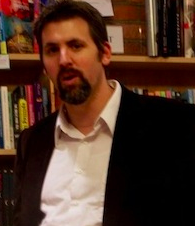
Horror Author Kevin Lucia
Kevin Lucia has worked as an Editor for Shroud Magazine and a Submissions Reader for Cemetery Dance Magazine, and is now an Associate Fiction Editor for The Horror Channel. His podcast “Horror 101” is featured monthly on Tales to Terrify and his short fiction has appeared in several venues. He’s currently finishing his Creative Writing Masters Degree at Binghamton University, he teaches high school English at Seton Catholic Central High School and lives in Castle Creek, New York with his wife and children. He is the author of Hiram Grange & The Chosen One, Book Four of The Hiram Grange Chronicles and his first short story collection, Things Slip Through is NOW AVAILABLE from Crystal Lake Publishing.
I love hearing from you!
To prove it and show my love, for the month of December, everyone who leaves a comment I will put your name in a hat. If you comment and link back to my blog on your blog, you get your name in the hat twice. What do you win? The unvarnished truth from yours truly. I will pick a winner once a month and it will be a critique of the first 20 pages of your novel, or your query letter, or your synopsis (5 pages or less). Comments for guests get extra POINTS!


December 20, 2013
The Best Horror Writers You’ve Probably Never Read (But Should) Part 4

Original Image via Flickr Creative Commons, courtesy of Anurag Agnihotri
Kevin is continuing his series on horror, offering works we might not be aware of, books that can diversify and enrich our creative pallets. Why paint with three colors, when there is a limitless spectrum awaiting if only we’re brave enough to explore?
Take it away, Kevin!
***
“Horror isn’t a genre…it’s an emotion.” – Douglas E. Winter, American writer, critic and lawyer.
If one of literature’s more noble functions is to comment on the human experience, then the horror genre has the potential to take a scalpel to that human experience and dissect all our worst fears, nightmares, and weaknesses. Horror can examine our frailties and strengths, and – like all good fiction – show us at our worst and at our best. Today, I’d like to present you with some authors whose work I’ve found especially moving, emotionally.
Gary Braunbeck’s fiction is drawn from a very deep, emotional well, which gives his work rich (and often terrifying) substance. One only needs to read his autobiographical treatise on the horror genre, To Each Their Darkness, to see how much he’s drawn from his life. What’s so powerful about Gary’s fiction is twofold: first, his characters could be us. Could be the person down the street. Could be that tired mother pushing a child in a stroller and holding another child in the crook of her arm while waiting in a food pantry line.
Secondly, Gary pushes the metaphysical/existential/spiritual/quantum mechanical “what does it all mean?” line better than anyone I’ve read in horror fiction, with the exception of Peter Straub and British writer Gary McMahon. While Gary’s stories seem ripped right from the headlines: domestic abuse, mass killings, suicides, infanticide, underneath he’s ALWAYS asking the BIG questions: Why? How do these things happen? Who/What allows them to happen? The way he addresses these questions are more frightening than any kind of “horror.” Also, like Charles Grant’s “Oxrun Station” stories, Gary’s novels In Silent Graves, Mr. Hands, The Keepers, Coffin County, Far Dark Fields all take place in his fictional city of Cedar Hill. And to show his range, Gary’s most recent collection, Rose of Sharon, features all mainstream, literary, non-genre fiction that’s sure to be every bit as compelling as his genre fiction.
Mary Sangiovanni takes Lovecraft’s “cosmic horror,” injects it with heart and emotion and believable characters, making it all her own. A writer who relies on characterization, tension and dread, her “Hollower” trilogy – Hollower, I See You and Triumvirate – deals with cosmic horrors from beyond the pale, but it also deals with the human experience. She’s not afraid to rip you apart emotionally (but oh, so quietly), and her novel of cosmic terror Thrall is perhaps one of the finest riffs on “small town cosmic horror” I’ve ever read.
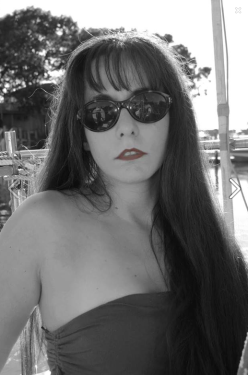
Author Mary SanGiovanni
Across the pond, Gary McMahon is easily Gary Braunbeck’s British counterpart, asking those same, deep questions. His most recent collection, Where You Live finds horror not in dank castles, gloomy moors or shadowed cemeteries…but at work. In the house down the road. In our homes and lives. His Thomas Usher books – which begins with Pretty Little Dead Things – features haunted, tragic occult detective Thomas Usher, a man mourning the loss of his family, cursed to see the dead…and not able to much about it. His short story “Some Pictures in an Album” in the anthology Chiral Mad is one the finest, most subtle…and most disturbing…pieces I’ve ever read.
Mercedes Yardley will make you laugh, cry, rage, giggle at completely inappropriate things, weep quietly, laugh again…all within the confines of one collection. The reason for that is that Mercedes truly writes about the human experience, the whole ball of wax: the good, the bad, the absurd, the strange, the strangely absurd, the weird, the ugly and everything else there is in life. You could say she writes horror, weird fiction, fairy tales, fables, or weird horrific fairy tales with elements of slipstream comedy…it doesn’t really matter what you call it. She’s a fantasist that plumbs the depths of the human heart in her first collection Beautiful Sorrows
.
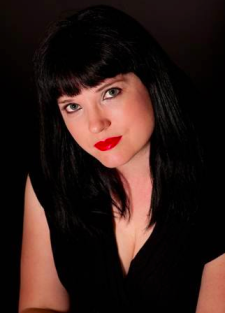
Author Mercedes Yardley
Primarily, Ronald Malfi writes about people. Hurting people, struggling people, people who’ve lost their way and are trying to find their way back or find some semblance of meaning, or are just trying to survive not only this world, but also themselves. And, of secondary importance, very often those stories traffic in the horror genre. But first and foremost, Ron writes about people and their conflicts, their emotions, their failures and their victories.
The Floating Staircase is ghost story…but so much more, and that story’s resolution left me near tears. The Narrows is one of the best small-town horror novels I’ve read since Salem’s Lot, and Malfi’s twist on a classic horror motif makes the story all his own. Snow is simply a well-written, entertaining horror novel…with characters we care about. The Fall of Never is Malfi’s take on the classic Gothic Tale and Passenger still stands as one of the most emotionally wrenching stories I’ve ever read.
I hope you’ll seek out some of these authors that have changed me and inspired me. Allow them to open your mind and thoughts into new ways to reveal the human condition, the common and uncommon struggles and, in the end, make your own work far richer.

Horror Author Kevin Lucia
Kevin Lucia has worked as an Editor for Shroud Magazine and a Submissions Reader for Cemetery Dance Magazine, and is now an Associate Fiction Editor for The Horror Channel. His podcast “Horror 101” is featured monthly on Tales to Terrify and his short fiction has appeared in several venues. He’s currently finishing his Creative Writing Masters Degree at Binghamton University, he teaches high school English at Seton Catholic Central High School and lives in Castle Creek, New York with his wife and children. He is the author of Hiram Grange & The Chosen One, Book Four of The Hiram Grange Chronicles and his first short story collection, Things Slip Through is NOW AVAILABLE from Crystal Lake Publishing.
I love hearing from you!
To prove it and show my love, for the month of December, everyone who leaves a comment I will put your name in a hat. If you comment and link back to my blog on your blog, you get your name in the hat twice. What do you win? The unvarnished truth from yours truly. I will pick a winner once a month and it will be a critique of the first 20 pages of your novel, or your query letter, or your synopsis (5 pages or less). Comments for guests get extra POINTS!


December 19, 2013
The Best Horror Writers You’ve Probably Never Read (But Should) Part 3
It’s the holidays, so why are we talking about horror? Well, 15 minutes at my family reunions could answer that, but in short, horror authors aren’t all blood, guts and gore. In fact, the horror legends do what ALL authors should do…they probe the human soul, peel back falsehood and reveal the authentic human condition for better or worse.
Whether we pick up a Stephen King, Dean Koontz, Edgar Allen Poe, or Rod Sterling story, what surfaces almost immediately is these authors understood people when creating these tales. Writing great novels requires we become masters of exploring the psyche, of using what makes humans weak, greedy, vengeful, callous, vain or jealous. Human frailty is the lifeblood of story—CONFLICT. Whether one writes thrillers, romance or YA, we must be able to delve deep and go to those uncomfortable places, because THAT is why readers turn pages.
Today, Kevin continues his series about horror, to help demystify the genre and show us it’s more than slasher flicks or B-movies. Great horror is timeless (Telltale Heart, anyone?). Great writers grow into their unique greatness by studying masters who came before, even masters from different genres. We infuse our own work with the genius inspired by others, so today Kevin will offer more insight and a reading list like none other.
Take it away, Kevin!
***
Some writers don’t necessarily “fit” into what folks think is “horror.” In other words, because they don’t write about monsters, vampires, zombies, werewolves, serial killers or serial killing mummified zombie vampires, they’re not considered as “horror” writers by horror fans and young, fledgling horror writers like I was a few years ago. Or, even worse, they suffer from the opposite problem: they have “horror” slapped on their books but really their work is much bigger than just horror, and those who don’t like “horror” end up missing them entirely.
Or, maybe a writer has written so many other things that their “horror” hasn’t gotten as much attention. Maybe they primarily operate in a different genre – like science fiction – but have written some “horror” or stories possessing “horror” elements. For me, at least, here are some authors I initially missed simply because they didn’t fit into neat categorizations.
Ray Bradbury certainly needs no introduction to anyone. His work is adored by legions, but most of the attention is (in my experience) focused on his seminal works: Fahrenheit 451, Dandelion Wine, Something Wicked This Way Comes, The Martian Chronicles & The Illustrated Man. However, Bradbury’s earliest work definitely lived in the weird/horror genre, much of it published in the original Weird Tales magazine. His first collection, Dark Carnival – which became The October Country – is full of weird and strange and uniquely disturbing little bits (like “The Jar” and “The Scythe” and “The Small Assassin”) that only Bradbury could’ve written.
Russell Kirk is probably more well-known for his essays on conservatism, (and not the Tea Party version of it) than his fiction, but when I ran across his short story “Lex Talionis” in one of the WHISPERS collections (we’ll get to those, trust me), I had to find more of his fiction. He specialized in ghost stories and occult detective tales, and as a devout Catholic, his fiction managed to be both uplifting and spooky. His collection Ancestral Shadows is a wonderful tome of ghost stories which, quite frankly, I enjoyed more than I did M. R. James’ work. Maybe not necessarily horror, but certainly well-written stories pondering what happens after death, and the spirits left wandering because of it.
Manley Wade Wellman was a giant in the science fiction/fantasy field, and for years I missed his work until I first encountered one of his main characters, Silver John the Balladeer, once again in a volume of WHISPERS. Though again not necessarily “horror,” you had to love Silver John: a traveling bard roaming the Appalachian mountains and countryside, a veteran of war who wanted peace, a wise man of folk and occult knowledge, carrying with him a guitar strung with silver strings.
He encountered demons, spirits, monsters, witches’ familiars…just about everything under the sun. Even centuries-old aliens bent on infiltrating and taking over humanity. Who Fears the Devil? And After Dark were my introductions to Wellman, and he’s also well-known for his other occult detective, John Thunderstone.
Rod Serling. Wait, what? Rod Serling? Yes. Shamefully enough, for the longest time I considered him just a talking head before I realized how many of the Twilight Zones he wrote himself. And, you can read many of them in collections – Stories from the Twilight Zone – some of them original paperbacks, as well as new Kindle versions, and we can all agree that one of the shows most adept at straddling the genres was the Twilight Zone.
Two contemporary authors that don’t fit into neat little categories and whose work definitely transcends the “horror” label are Mort Castle and Rio Youers. Mort Castle is one of the most “literary” horror writers out there. He’s been nominated for numerous Bram Stoker Awards, (winning two last year for his collection New Moon On The Water and his role as editor of the Ray Bradbury tribute collection, Shadow Show), but he’s also placed his work in literary venues and has won a Pushcart Prize as well. He’s a writing instructor at Columbia College Chicago, and his collection Moon On The Water is one of my favorites, boasting stories that run the gamut, from literary fiction to horror, including zombie mash-ups long before they were popular (in “The Old Man and the Dead”).
Rio’s work can often be dark, disturbing, introspective…but it doesn’t necessarily fit into the neat little niche “horror,” though he has written his fair share of genre tales. “Speculative fiction writer” best fits Rio, but really, he writes deftly and eloquently about what it means to be human. End Times and Westlake Soul may be tales of the fantastic – but they’re also tales about what it means to be human, and all the joy and suffering that goes with that. That’s why Westlake Soul has been optioned for film. Also, his collection Dark Dreams; Pale Horses offers some of the finest prose and stories I’ve ever encountered. Rio’s work transcends the horror genre; he will be the “next big thing” someday.
Tomorrow, we’ll look some more writers that could be considered “jacks of all trades,” but “masters of all…”
Kevin Lucia has worked as an Editor for Shroud Magazine and a Submissions Reader for Cemetery Dance Magazine, and is now an Associate Fiction Editor for The Horror Channel. His podcast “Horror 101” is featured monthly on Tales to Terrify and his short fiction has appeared in several venues. He’s currently finishing his Creative Writing Masters Degree at Binghamton University, he teaches high school English at Seton Catholic Central High School and lives in Castle Creek, New York with his wife and children. He is the author of Hiram Grange & The Chosen One, Book Four of The Hiram Grange Chronicles and his first short story collection, Things Slip Through is NOW AVAILABLE from Crystal Lake Publishing.
I love hearing from you!

Horror Author Kevin Lucia
To prove it and show my love, for the month of December, everyone who leaves a comment I will put your name in a hat. If you comment and link back to my blog on your blog, you get your name in the hat twice. What do you win? The unvarnished truth from yours truly. I will pick a winner once a month and it will be a critique of the first 20 pages of your novel, or your query letter, or your synopsis (5 pages or less). Comments for guests get extra POINTS!


December 17, 2013
The Best Horror Writers You’ve Probably Never Read (But Should): Part Two
As writers around the world scream a collective, “NOOOOOOOOOO!!!!!”
Kidding aside, it might seem strange that I have our WANA International Instructor, Kevin Lucia here talking about the horror genre. Yet, sometimes it’s good to get out of the comfort zone and cross-pollinate our creativity. I can tell writers who do too much reading in the same genre. What can really add that certain je ne sais quoi is when an author adds in elements from unexpected areas.
This is what makes the writing unique. Writing is similar to music, and the legends we remember in music are transcendent simply because they possess a gift of surprising listeners. They might add elements of opera to heavy metal or jazz to rap. This is where tropes can transform into something magical. Writers can do the same.
Kevin’s here to offer some suggestions to help diversify your creative palette.
Take it away, Kevin!
****
Some horror writers, for whatever reason, never end up writing nearly as much as others. And this is unfortunate. They never quite earn the popularity they deserve simply because they don’t churn out one cookie-cutter, mediocre story after another. Maybe it’s because of their sense of craftsmanship; because they consider(ed) themselves artists, because they want(ed) to live and breathe their own work, rather than spewing it out like a vending machine. Maybe they left us too early or, like Harper Lee, felt they’d said all they’d needed to say.
In my reading through different anthologies and collections, I’ve been amazed at how many of these writers I’ve encountered who only ever wrote a handful of stories. And because of this, sadly, they got pushed aside by legions of “pop” writers who latched onto the current craze, rode the wave, and then got overrun by the next legion of “pop” writers. Here’s a handful of horror writers I wish had written more, or I wish WOULD write more.
In thirty years, Alan Peter Ryan wrote forty short stories, three novels and one novella. And I wish he’d written more. A stylist who knew how to use place better than anyone, his novels Cast A Cold Eye, his novella Amazonas and his novelette collection The Back of Beyond are among the finest things I’d ever read. He wrote with a literary sensibility, and also had two reoccurring characters – cowboys in weird westerns the likes of which Larry McMurty or Louis L’Amour might’ve written – that I enjoyed, and wanted to see more of. Unfortunately, just as he was returning from a fourteen year hiatus from horror fiction, Mr. Ryan passed away due to pancreatic cancer. His other novels: The Kill and Dead White, and his collection, The Bones Wizard.
T. E. D. Klein wrote only one novel: The Ceremonies. Literary, finely crafted, built on tension and dread and atmosphere, about old myths and religions, it stands as one of the best things I’ve ever read. And that’s it. Only one novel, and no more appear to be coming any time soon. His short fiction is also astounding…and he only wrote fifteen of those, collected in Dark Gods and Reassuring Tales. He also served as the editor of The Twilight Zone Magazine, which became known during its four year run as one of the premier horror/dark fantasy magazines on the market.
Thomas Tessier is another fine author who hasn’t been nearly as prolific as some – only ten novels from 1978 – 2007 – but the results stand above the rest. Phantom is one of the best coming-of-age novels I’ve ever read, and Fog Heart is deeply emotional, moving, disturbing, and finely written. Two collections of his short fiction exist, Ghost Music and Other Tales, and Remorseless: Tales of Cruelty.
A contemporary author who hasn’t written nearly as much as I’d like him to is Robert Dunbar. The Pines and The Shore are wonderfully lush, vivid, poetic novels offering intriguing spins on The Jersey Devil myths. They’re also about hurting people trying to find their way in the world without hurting those they love most. His collection Martyrs & Monsters offered wonderful genre/literary blends, and his small press Uninvited Books has committed itself to publishing literate, well-written dark fiction.
Another writer, Robert Ford (and no, not the crack-smoking mayor of Toronto), also hasn’t written enough, of which we all dutifully remind him often, and kindly (sorta). Bob writes immensely enjoyable, entertaining horror…but his sense of style and craft is finely tuned, raising his work above the rest. Samson and Denial is a wonderful mix of crime noir and horror and I bought his short story “Georgie” for Shroud Magazine’s Halloween Issue because – as a father myself – it tore my guts out, in all the best ways. I haven’t yet read his zombie novel The Compound, but I know this: it will be about far more than zombies, simply because it was written by Robert Ford.
Tomorrow, I’ll look at some authors whose writing simply can’t be contained by the term “horror,” or whose work sprawls outside all the lines.

Horror Author Kevin Lucia
Kevin Lucia has worked as an Editor for Shroud Magazine and a Submissions Reader for Cemetery Dance Magazine, and is now an Associate Fiction Editor for The Horror Channel. His podcast “Horror 101” is featured monthly on Tales to Terrify and his short fiction has appeared in several venues. He’s currently finishing his Creative Writing Masters Degree at Binghamton University, he teaches high school English at Seton Catholic Central High School and lives in Castle Creek, New York with his wife and children. He is the author of Hiram Grange & The Chosen One, Book Four of The Hiram Grange Chronicles and his first short story collection, Things Slip Through is NOW AVAILABLE from Crystal Lake Publishing.
I love hearing from you!
To prove it and show my love, for the month of December, everyone who leaves a comment I will put your name in a hat. If you comment and link back to my blog on your blog, you get your name in the hat twice. What do you win? The unvarnished truth from yours truly. I will pick a winner once a month and it will be a critique of the first 20 pages of your novel, or your query letter, or your synopsis (5 pages or less). Comments for guests get extra POINTS!
Also, due to an EPIC ice storm, my Big Boss Troublemaker class has been moved to TONIGHT. No antagonist? NO STORY. There is no novel I can’t help you fix, so SIGN UP here. There is no need to spend years editing and revising. An hour with me? ALL fixed.
I hope you will check out my newest book Rise of the Machines–Human Authors in a Digital World on Amazon or even Barnes and Noble.


December 16, 2013
The Best Horror Writers You’ve Probably Never Read (But Should)…
Okay, MERRY CHRISTMAS! Yeah, a series on horror? Well, if you spent five minutes with some of MY family members, a chainsaw might sound like a great idea. Truth be told, horror is one of my FAVORITE sub-genres and our WANA International Instructor Kevin Lucia? He’s an AMAZING teacher. Also, horror is one of those genres that goes for the guts (no pun intended). It truly probes the human condition, and whether or not we are fans, we can learn A LOT from what horror authors do best.
All great stories probe what we FEAR. This is the essence of good storytelling. Whether it is the fear of not finding love or losing love or not achieving a goal? FEAR is the heart of conflict. No conflict? No story. This is why I’ve recruited one of the best authors I know to talk about a genre that many might not believe is salient….yet it is a masterful lesson how to make ALL fiction fabulous.
Take it away, Kevin!
****
I’ve learned much about the craft since I made my first foray into horror fiction seven years ago, but the most important lesson I learned in two parts. The first came during an evening spent with genre luminaries Tom Monteleone, F. Paul Wilson and Stuart David Schiff.
You can get the full story here, but in brief: I spent the evening hanging with these giants as they regaled each other with tales of their experiences. One of the biggest takeaways was this humbling realization: I knew very little of the genre’s history.
The second installment of this lesson came the following fall during Brian Keene’s keynote address at AnthoCon: ROOTS, in which he detailed the different “waves” that made up the horror genre’s history. I was once again humbled to realize that my reading diet was quite shallow. I’d read almost every Stephen King and Dean Koontz novel, a few Peter Straub novels…
And that was it.
I quickly realized I wasn’t drawing upon a rich, developed palette to write my fiction. And while I’d read mostly novels and very few short stories, there I was, trying to “make my bones” writing short stories. This dissonance led me to radically alter my reading diet, committing myself to exploring the horror genre.
And in this blog series, I’d like to share those writers with you. In each installment I’ll present the giants of the genre and also some newcomers that maybe aren’t landing splashy big deals because they don’t write about zombies or vampires or sparkling vampire zombies, but write horror fiction that actually means something. Also, one good thing about the “greats” is that their work has either been re-released as eBooks, or used copies can be found cheap (almost criminally so) on Amazon.
But keep in mind: this list is hardly exhaustive. These are just the folks I’ve read myself.
Quiet Horror: The following three writers helped create a subgenre of horror called quiet horror. These tales boast rich, taut atmospheres; finely crafted prose and stories that comment deeply on the human experience. They didn’t rely on shock value. If you’re looking for something very far away from slasher films, this is it.
Charles Grant is probably considered the father of “quiet horror,” the epitome of everything the subgenre aspired to. He built tension better than anyone I’ve ever read and his prose flows gently, softly, quietly. His greatest achievement may be the creation of Oxrun Station, a fictional, haunted town in Connecticut with a loosely-connected continuity. He was also one of the finest editors in the business, his SHADOWS anthologies setting the standard for many years. His backlist.
Ramsey Campbell is called “Britain’s greatest living horror writer” by the Oxford English Dictionary. He also excels in quiet, tense horror that relies on emotion and psychological fears rather than shock and gore. He’s also adept at creating slippery, surreal narratives that leave his characters – and us – questioning what we call reality. Quite simply, Ramsey is one of the best in the business. His backlist and current list.
T. M. Wright has been called a “one-man definition of quiet horror” by Ramsey Campbell himself. He’s a modern master of “the ghost story” and for me, he completely changed the way I thought about ghosts. Like the previous two, his prose is rich, finely crafted, and he relies on stories of substance rather than superficial genre motifs. His backlist.
New Voice You Should Read:
Norman Prentiss is the first name that comes to mind when I think of a contemporary writer of “quiet horror.” His novella Invisible Fences is one of the finest things I’ve ever read, and he’s re-invented Charles Grant’s Oxrun Station-mythos in the exploits of the sinister (maybe?) Dr. Sibley, a college English professor you don’t want to cross. Keep an eye on Norman; he’s going places. Current publications.
So what are your thoughts? I am not a fan of slasher movies but I LOVE a great scary story. I love anything that makes me look more deeply at myself (um, I, Robot?).
I love hearing from you!
To prove it and show my love, for the month of December, everyone who leaves a comment I will put your name in a hat. If you comment and link back to my blog on your blog, you get your name in the hat twice. What do you win? The unvarnished truth from yours truly. I will pick a winner once a month and it will be a critique of the first 20 pages of your novel, or your query letter, or your synopsis (5 pages or less). Comments for guests get extra POINTS!
Also, due to an EPIC ice storm, my Big Boss Troublemaker class has been moved to TUESDAY. No antagonist? NO STORY. There is no novel I can’t help you fix, so SIGN UP here. There is no need to spend years editing and revising. An hour with me? ALL fixed.
I hope you will check out my newest book Rise of the Machines–Human Authors in a Digital World onAmazon or even Barnes and Noble.


December 12, 2013
Expectations & Reality—Making a Better, Happier, Stronger YOU
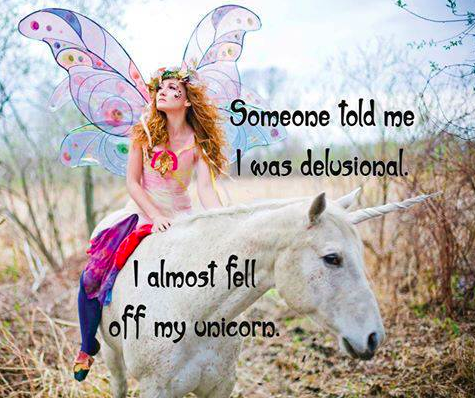
Twig the Fairy
My father loved to spin yarns and tell jokes, and one of my favorite jokes of his was the one about the twins (some of you have heard this before, but it never gets old). One was a pessimist and the other was an optimist. As my father told it…
Scientists were conducting an experiment to study the difference between pessimists and optimists. So, they searched far and wide for parents with twins—-one an optimist and one a pessimist. Finally, they found a pair of boys, and, after all the waivers were signed, the experiment could begin. There were two rooms, both were waist-deep in horse manure. The scientists watched from behind the two-way mirror to see what would happen.
One boy (the pessimist) cried and moaned, “I just knew it. This stuff always happens to me. I should have known that something bad was going to happen. Why can’t I ever get a break?”
The other boy, though, was slogging happily around the room and laughing as he flung horse manure into the air, each time with a healthy giggle. Baffled, the scientists had to enter the room of the optimistic twin and ask, “What on earth are you so happy about? Don’t you realize you’re waist-deep in animal feces?”
The boy replied, “Are you kidding me? Why wouldn’t I be happy? With all this horse sh!% there has GOT to be a pony in here somewhere!”
Meltdown
The past three months have been crazy. October and November were a train wreck when it came to my personal life. Just about the time I was seeing some light, Dallas/Fort Worth was hit with a major ice storm last weekend, which wasn’t so bad until Saturday when every sink, tub, shower and toilet decided to back up water and sewage and flood the floors. We used every towel we owned to keep the walls and carpet from being ruined…and every plumber in DFW was down. They, too, couldn’t get out because of the ice.
I spent most of Monday and Tuesday cleaning the epic mess.
But you know what?
I don’t believe it is any great test of character to be happy when everything is going our way. Anyone can do that. The real mark of a person is how he or she behaves when the world seems to be caving in. Can we be peaceful, calm, happy, and look for the good….no matter what?
Yes, I freaked out for a few minutes and cried about the mess and that no plumber could come help. But, after I had my five-minute pity-party, I worked with my husband to make a plan to endure the freeze. We cleaned up as much as we could then began pouring boiling water with dish detergent down the main sink. Soon, the plumbing wasn’t backing up into the tubs, sinks and showers and we could take brief showers and use the sinks and toilets…carefully.
I set my mind that the ice storm was really a blessing. We wouldn’t have to pay the $250 emergency fee just for a plumber to show up. We made it until Monday and guess what? It was a regular plumbing visit (a clog) and the total was $218. If one of the four companies I’d called when I was freaking out on Saturday had actually been able to come over? It would have easily been close to $500.
Feelings Need Discipline
We train our minds much like we train our bodies. We need to exercise them and discipline our habits. We have a choice how we react and a lot of this is influenced by our expectations. What are we expecting to happen? Are we looking for the good? Or looking for how we will be somehow wronged?
I know that I was born an optimist. I think that is why my father used to rib me with that joke. But, there was a span of about 15 years that I allowed other negative people to convince me that I was a fool, an idiot, an unrealistic Pollyanna. I started expecting the worst, and I wouldn’t allow myself to hope for anything, because if I didn’t expect good things then I couldn’t be disappointed. I became a grouch, a complainer and a seed of discontent…and no one wanted to be around me. My life was full of junk, and why wouldn’t it have been? I didn’t expect good things, so I couldn’t even see them when they sat right in front of my face.
Eventually, I got sick and tired of being sick and tired, so I started being very careful about my thought life. Our mind doesn’t have to be a garbage dump. We are in control of our thoughts, and we don’t need to dwell on every thought that drifts into our brains. Focus on good things, and it is amazing how quickly the tough times will fly by. Life, people, your work will disappoint you. Sometimes, they might even rip out your heart and show it to you.
We can cave or we can change.
Yes, the view from the mountain’s summit is breathtaking, but nothing grows there. The most growth happens in the valleys. Film is developed in the dark and so is character. When hurt, pain, loss, disappointment, frustration come our way we have a choice in how we view the situation. All of us have rough spots, and those setbacks, hurts and trials are the spiritual sandpaper that will shape us into a more excellent version of ourselves.
I know that life is about seasons. There are seasons of joy and abundance and it seems that everything is going my way. In turn, that isn’t all of life. Gotta have the sour, or the sweet isn’t as sweet. And, if I have to endure the sour, I choose to do it with a smile, with great expectation of the better Kristen those trials will make me.
With all this horse sh*& there has GOT to be a pony in here somewhere :D!
What do you guys think? What are your opinions? Thoughts? Ideas? Have you ever experiences something that appeared to be a disaster, yet was a blessing in disguise? I love hearing from you guys! Btw, the above image is Twig the Fairy if you want to follow her on Facebook. I’ve met her and she is seriously NEAT.
I love hearing from you!
To prove it and show my love, for the month of December, everyone who leaves a comment I will put your name in a hat. If you comment and link back to my blog on your blog, you get your name in the hat twice. What do you win? The unvarnished truth from yours truly. I will pick a winner once a month and it will be a critique of the first 20 pages of your novel, or your query letter, or your synopsis (5 pages or less).
I hope you will check out my newest book Rise of the Machines–Human Authors in a Digital World onAmazon or even Barnes and Noble.




